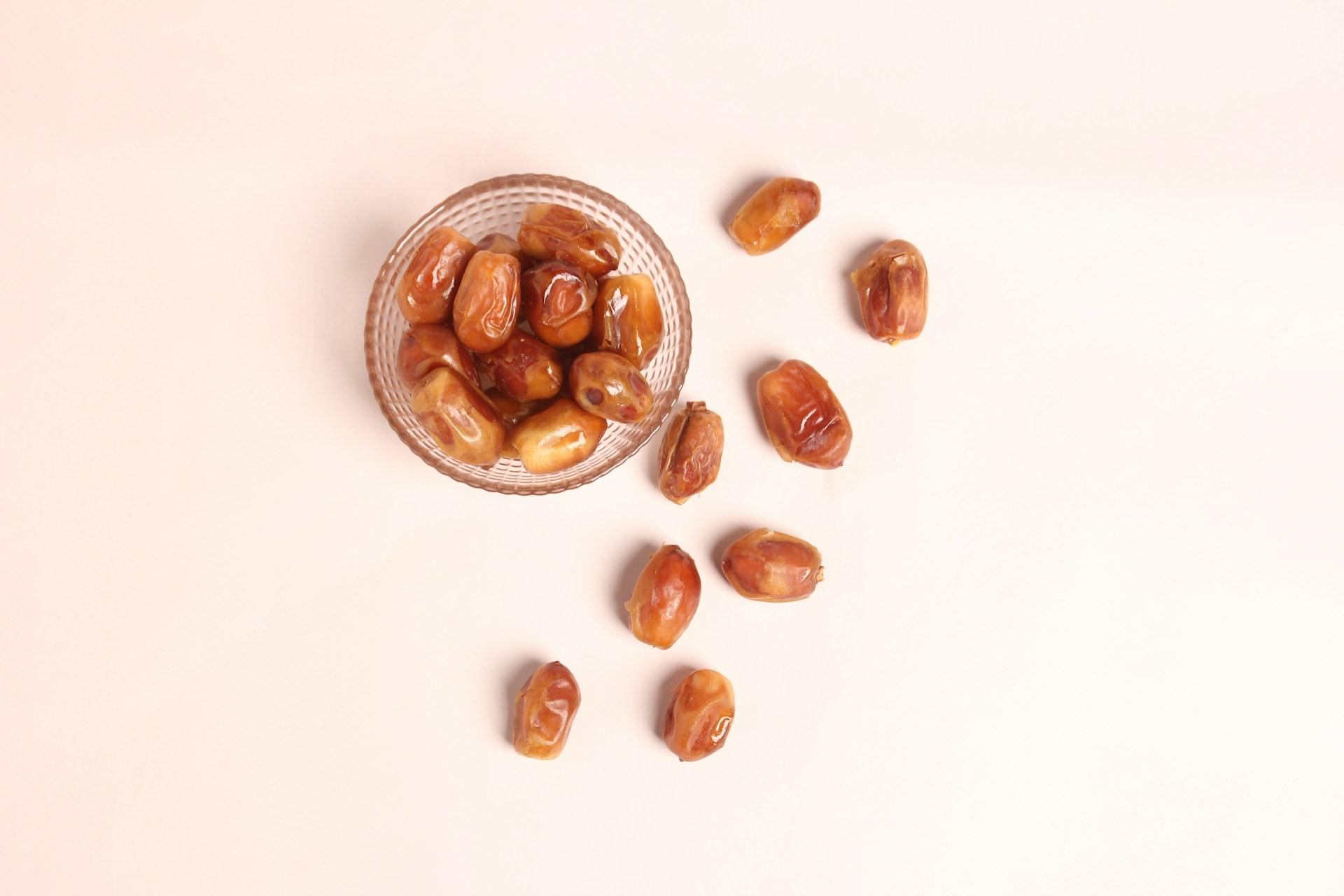Dates are a delicious and nutritious fruit packed with vitamins, minerals, and fiber. Here are ten reasons to include them in your diet:
-
Highly Nutritious: Dates are a natural source of energy, containing carbohydrates, fiber, protein, vitamins, and minerals. They're a good source of potassium, magnesium, vitamin B6, and iron.
-
Excellent Source of Fiber: Dates are a great source of dietary fiber, which aids digestion, promotes feelings of fullness, and may help lower cholesterol levels.
-
Rich in Antioxidants: Dates contain antioxidants that can help protect your cells from damage and reduce the risk of chronic diseases like heart disease and cancer.
-
May Promote Brain Health: Studies suggest that dates may improve brain function due to their anti-inflammatory properties and potential to lower brain inflammation markers.
-
Natural Sweetener: Dates can be a healthy substitute for refined sugar in baking and cooking. Their sweetness comes from natural sugars like fructose and glucose.
-
Good Source of Energy: Dates are a concentrated source of natural sugars and carbohydrates, providing a quick and sustained energy boost.
-
May Aid in Digestion: Dates contain fiber and sorbitol, a type of sugar alcohol that can have a laxative effect and promote healthy digestion.
-
Potential Benefits for Bone Health: Dates contain minerals like phosphorus, calcium, and magnesium, which are all important for maintaining strong bones.
-
May Aid in Natural Labor: Studies suggest that dates may help stimulate contractions and shorten labor in pregnant women at term.
-
A Versatile Ingredient: Dates can be enjoyed on their own, chopped into salads, stuffed with nut butter, or added to oatmeal and yogurt for a touch of natural sweetness.
Remember: Dates are a calorie-dense food, so enjoy them in moderation as part of a balanced diet.
Benefits of Dates
Dates are a delicious and nutritious fruit packed with vitamins, minerals, and fiber. Here are some of the reasons to include them in your diet:
Rich in Nutrients
-
Dates are a natural source of energy, containing carbohydrates, fiber, protein, vitamins, and minerals.
-
They're a good source of potassium, magnesium, vitamin B6, and iron.
Excellent Source of Fiber
-
Dates are a great source of dietary fiber, which aids digestion, promotes feelings of fullness, and may help lower cholesterol levels.
Rich in Antioxidants
-
Dates contain antioxidants that can help protect your cells from damage and reduce the risk of chronic diseases like heart disease and cancer.
May Promote Brain Health
-
Studies suggest that dates may improve brain function due to their anti-inflammatory properties and potential to lower brain inflammation markers.
Other Potential Benefits
-
Natural Sweetener: Dates can be a healthy substitute for refined sugar in baking and cooking. Their sweetness comes from natural sugars like fructose and glucose.
-
Good Source of Energy: Dates are a concentrated source of natural sugars and carbohydrates, providing a quick and sustained energy boost.
-
May Aid in Digestion: Dates contain fiber and sorbitol, a type of sugar alcohol that can have a laxative effect and promote healthy digestion.
-
Potential Benefits for Bone Health: Dates contain minerals like phosphorus, calcium, and magnesium, which are all important for maintaining strong bones.
-
May Aid in Natural Labor: Studies suggest that dates may help stimulate contractions and shorten labor in pregnant women at term.
-
A Versatile Ingredient: Dates can be enjoyed on their own, chopped into salads, stuffed with nut butter, or added to oatmeal and yogurt for a touch of natural sweetness.
Remember: Dates are a calorie-dense food, so enjoy them in moderation as part of a balanced diet.
Disadvantages of Not Having Dates
While not necessarily detrimental to your health, there are some potential downsides to excluding dates from your diet:
Missing Out on Essential Nutrients
-
Dates are a good source of several essential vitamins and minerals, including potassium, magnesium, vitamin B6, and iron. These nutrients play various important roles in the body, and consistently missing out on them could lead to deficiencies.
Lower Dietary Fiber Intake
-
Dates are a good source of dietary fiber, which is important for digestion and gut health. It promotes feelings of fullness and regularity, and may help lower cholesterol levels.
Potential Lack of Antioxidants
-
Dates contain antioxidants that can help protect your cells from damage and reduce the risk of chronic diseases like heart disease and cancer.
Reduced Energy Levels
-
Dates are a concentrated source of natural sugars and carbohydrates, providing a quick and sustained energy boost. They can be a handy pick-me-up during the day.
Important Note: It's important to remember that a balanced diet can provide all the nutrients you need without necessarily including dates. There are other fruits and foods that are rich in fiber, antioxidants, and the vitamins and minerals mentioned previously.
Disadvantages of Having Excessive Dates
Dates are a nutritious fruit, but like most things, moderation is key. Here are some potential downsides to consuming too many dates:
Weight Gain
-
Dates are calorie-dense due to their high sugar and carbohydrate content. Eating excessive amounts can lead to weight gain over time.
Blood Sugar Spikes
-
Dates have a high glycemic index, meaning they can cause rapid spikes in blood sugar levels. This can be problematic for people with diabetes or prediabetes.
Digestive Issues
-
Dates contain a high amount of fiber, which is great for digestion in moderation. However, consuming too much fiber too quickly can cause bloating, gas, and diarrhea.
Increased Risk of Cavities
-
Dates are high in sugar, which can contribute to tooth decay if not balanced with proper oral hygiene. Be sure to brush your teeth after consuming dates.
High Potassium Intake (for some)
-
Dates are a good source of potassium, but too much potassium can be harmful for people with certain kidney conditions. If you have concerns about your potassium levels, consult with your doctor before consuming excessive dates.



